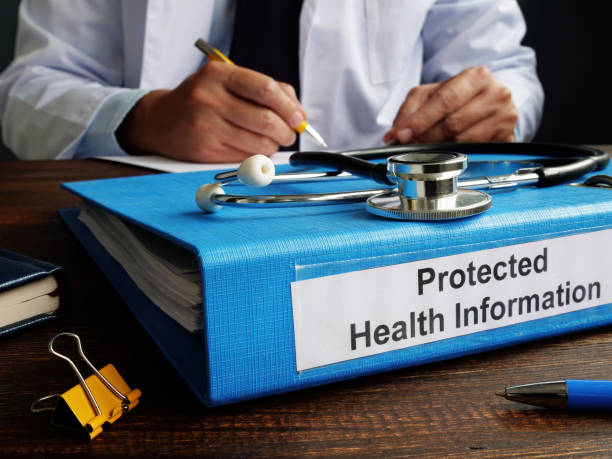The COVID-19 pandemic probably taught the world more about pathogens than all the basic health classes people ever attended. Many may have learned from childhood that frequent handwashing, covering one’s mouth and nose while sneezing or coughing, keeping one’s distance from someone who’s ill, and practicing other similar health habits prevent the spread of viruses and bacteria that cause diseases. Unfortunately, it took a global health crisis for people to fully understand their significance and learn how to do it correctly.
Since you are probably already familiar with the right ways to keep yourself safe from COVID-19 and other illnesses, you should also know what sort of practices to avoid when going out in public. Keep in mind that infectious diseases spread through direct or indirect contact between people. To help you out, here is a list of some of the top things you should stop doing to protect your health while in public spaces.
Touching Communal Objects And Surfaces
Bus and subway poles, doorknobs, shopping carts, automated teller machines (ATMs), elevator buttons, and similar objects and surfaces come into contact with the hands of all types of people every day. Unfortunately, some of those people are likely to be sick, and it is possible that they sneezed or coughed in their hands and touched these things without first disinfecting properly. As such, there is a good chance that communal objects and surfaces are contaminated with a variety of bacteria, viruses, and other microorganisms that can make you ill when you hold them with bare hands and touch your mouth, eyes, or nose afterward.
Protect yourself by wearing fabric antimicrobial gloves that can act as a barrier that will help you avoid getting pathogens on your hands. By wearing such a “hand protector,” you can confidently touch poles, handles, railings, keypads, or push buttons without worry. If you don’t have one, a good old piece of tissue paper should do the trick as well. Of course, you can also use an alcohol-based hand sanitizer or wash your hands with soap and water to keep them germ-free, although these methods could be a bit inconvenient, especially if you are always on the go.
Staying In Poorly Ventilated Indoor Spaces
As you may know by now, viruses spread between people more easily indoors because the concentration of virus droplets in the air tends to be much higher than in the outdoors. This is why when you eat in a crowded restaurant or do business in an office with poor ventilation, the probability that viral particles in the air will get into contact with your eyes, nose, and mouth will be much higher, especially if you end up staying inside for a long time.
So, the next time that you want to eat in a restaurant, opt for al fresco dining or a place with open windows and fully functioning exhaust fans to better protect your health. Better yet, consider taking out your food, calling for delivery, or cooking at home. For your banking needs, how about transacting online so that you do not have to go to the bank? You can also share a ride with a family member instead of riding a bus or train. Ultimately, you should find other means to avoid staying in indoor spaces that do not offer fresh air.
Touching Your Face
You are probably unaware that you touch your face many times a day. You scratch your nose, rub your eyes, lean on your chin, and touch your lips with your fingers. One study published in the Journal of Occupational and Environmental Hygiene found that people who do office work touch these areas of their face 16 times an hour on average.
Think about what would happen if you held a contaminated door handle in your office and you rubbed your tired eyes afterward. You are essentially allowing pathogens to enter your body. Do not give bacteria and viruses a free pass by following a simple rule—just stop touching your face! If you cannot resist the urge, make sure to wash or sanitize your hands often, in order to protect your health.
Crowding With Other People
Being in a crowded setting, such as bars, fitness centers, sports arenas, or movie theaters can put you at a greater risk of contracting different respiratory illnesses, from a mild sore throat, common cold, and flu to sinus infections, bronchitis, and COVID-19. When a sick person near you coughs or sneezes, they release respiratory droplets that could land on your face. You can also breathe in viral and bacterial practices suspended in the air or touch surfaces contaminated by microbes.
Prevent getting infected by avoiding crowded areas or keeping a safe distance of at least six feet between yourself and other people outside your household. Also, try limiting face-to-face contact with others when grocery shopping or running errands. Consider only going to stores and other establishments during off-peak hours or opting for contactless transactions whenever possible.
Letting Your Guard Down
You cannot let your guard down whenever you go outside since there is always a risk of you getting infected by different types of pathogens when mingling with strangers, especially inside enclosed spaces. Even if you cannot see these microbes, always assume that they are present wherever you are.
Remain cautious and always prepare before going to public places. Bring a face mask as protection when social distancing is not possible, and use an alcohol-based hand sanitizer to disinfect your hands every time you touch something. Moreover, avoid loitering in public spaces. Go home as soon as you are through with your business.
The COVID-19 pandemic reinforces the truth that health is indeed wealth. Only when you are healthy can you pursue your dreams, enjoy the company of loved ones, and live a happy life. That said, protecting your health should be one of your top priorities. Continue practicing healthy habits and avoiding the “don’ts” discussed above to lower your risk of getting sick. As the famous adage goes, “prevention is always better than cure.”
Easy Ways To Improve And Strengthen Your Gut Health
Did you know that there are more than 40 trillion bacteria living in your body at any given moment? Most of these bacteria are found in your gut and help your body and brain stay healthy and function the way they should. There are more than 300 different types of bacteria that live in your gut alongside different types of fungi and even some viruses. Scientists have dubbed this gut colony as a microbiome.
Each person’s microbiome is unique and learning how to improve and strengthen it is important in preventing things like depression, colon diseases, heart disease, and more. Because of this, it’s important to make sure you’re constantly looking to improve and strengthen your gut health so you can maintain a healthy lifestyle.
Eat A Variety Of Foods
Your gut’s bacteria are diverse and each type of bacteria needs a slightly different source of nutrition. As our world has become more centralized and people have moved away from eating wider varieties of foods as we did many years ago. Back when populations relied on rural farming and a variety of plants and animals to sustain them, gut biomes were happier and healthier. In an ironic twist, people who live in rural, less developed nations often have healthier gut biomes than people living in the world’s most advanced cities.
“Today’s diets are often loaded with fats, sugars, and grains in levels that aren’t diverse enough to support a healthy gut biome,” says Juan Pablo Cappello, Co-Founder and CEO of Nue Life. “Our bodies need a variety of fuel sources to create a healthy biome of good bacteria to keep our guts strong and healthy. Including these varieties of foods is not an easy task, as Western diets have moved away from the diversity that would have been found in the diets of our ancestors who were able to grow and harvest their food.”
Probiotics And Prebiotics
Probiotics and prebiotics are wonderful ways to improve and strengthen your gut health. Probiotic foods and supplements contain live bacteria that you can introduce to your gut colony to encourage a happier, healthier gut. Prebiotics are the food that the bacteria need to survive in your gut.
“Probiotic and prebiotic supplements and foods can dramatically improve gut health,” says Dr. Payel Gupta, CMO and Co-Founder of Cleared. “While you can eat fermented foods to introduce these probiotics, there are also supplements out there as well. The same goes for the prebiotics. Sometimes it’s hard to maintain these essential gut health flora, so supplements can be a great way to make sure your gut stays healthy.”
Look For High Fiber Produce
As mentioned in the previous section, it’s important to give your gut bacteria something to eat too. Fiber is one of the best sources of food for the good bacteria that live in your gut and keep you healthy. High-fiber produce is a great way to include vitamins and minerals in your diet and feed your gut flora at the same time.
“Not only do high fiber produce options help you maintain a great balanced diet, but they help your gut too,” says Jae Pak, Founder of Jae Pak MD. “High fiber produce like beans, legumes, bananas, broccoli, raspberries, and apples are great healthy foods that can introduce the necessary fiber into your gut biome to fuel those good bacteria.”
Explore Fermented Snacks And Drinks
Fermented snacks and drinks aren’t everyone’s cup of tea, but they can be a fantastic source of probiotics that can benefit your gut and strengthen its good bacteria colonies. Your microbiome is made up of lots of different good bacteria that help break down non-digestible foods and also promote a healthy gut.
“Kombucha, kefir yogurt, sauerkraut, and kimchi are great fermented foods to introduce probiotics to your gut,” says Natália Sadowski, Director of Aesthetics at Nourishing Biologicals. “Foods like kefir, certain cheeses, and saurkraut are considered synbiotic because they provide the gut with probiotics AND a source of fuel for those good bacteria.”
Select Whole Grain Options
Not only are whole grains good for your body, but they’re great for gut health too! Whole grains are rich with fiber and elements that are nondigestible to us, but are fantastic food sources for our gut’s bacteria colony.
“Whole grains are something we should be including in our diet anyway,” says Michael Fischer, Founder of Elite HRT. “Whole grain foods are much better for our bodies than processed grains and breads. These whole grain options allow the bacteria within our gut’s microbiome to flourish with energy provided through the parts we don’t digest.”
Enjoy Polyphenols
What are polyphenols? They’re a plant compound that helps combat things like high cholesterol, inflammation, high blood pressure, and more. They aren’t digested by humans well at all, which seems like it would be useless. However, the good bacteria in our guts LOVE polyphenols and use this plant compound as energy to fuel their growth and maintain your healthy gut.
“Polyphenols are actually in some of my favorite foods and drinks, so it’s not a difficult component to remember to include,” says Lindsay Hischebett, Head of People and Partners of Flaus. “Polyphenols can be found in cocoa, dark chocolate, red wine, green tea, almonds, and blueberries. Next time you’re indulging in one of these tasty snacks, you can feel good about the fact that you’re also helping out your gut!”
Conclusion
Having a healthy gut isn’t just a nice idea – it’s essential to keep your body healthy and functioning the way it should. There are many ways to improve and strengthen your gut health, and it comes down to supporting the good bacteria that live there and helping your body operate the way it should.
Fueling your gut with a variety of foods is a great way to start maintaining a healthy gut biome. Introducing new good bacteria through probiotic foods and supplements can help strengthen your gut’s bacteria colony as well. Whole grains, fermented foods, and polyphenols are all great ways to encourage these bacteria to stay active and healthy so they can help your gut out.
Having a healthy gut means watching what you eat and being conscious of the foods you’re using to fuel your gut biome. You have to provide nutrition for your body as well as the bacteria that support healthy gut health. Hopefully, these tips and tricks have given you a starting point to make your gut better and stronger than ever before.



